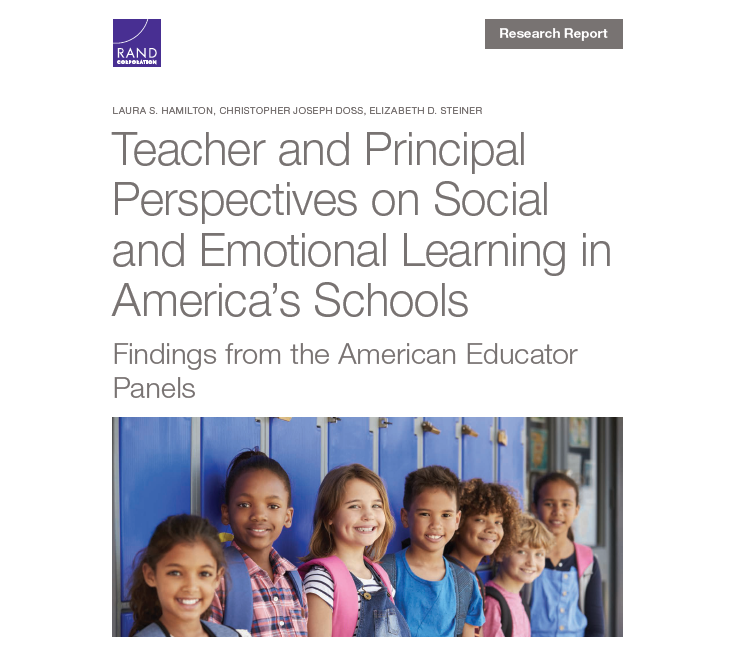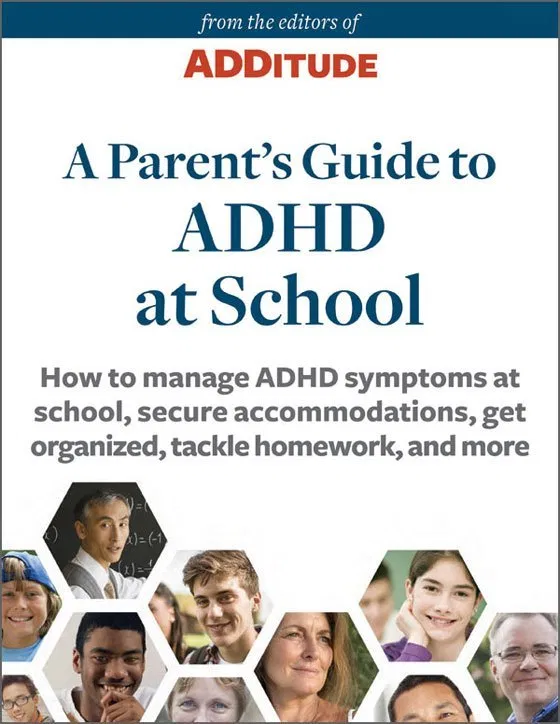New Report Finds that SEL is a Top Priority Among Educators [downloadable]
 Teacher and Principal Perspectives on Social and Emotional Learning in America’s Schools presents findings from nationally representative samples of teachers and principals surveyed for the RAND Corporation’s web-based American Educator Panels. Educators responded to questions addressing their beliefs about the importance and value of SEL in schools, their approaches to promoting and measuring SEL, and their opinions regarding supports for improving SEL.
Teacher and Principal Perspectives on Social and Emotional Learning in America’s Schools presents findings from nationally representative samples of teachers and principals surveyed for the RAND Corporation’s web-based American Educator Panels. Educators responded to questions addressing their beliefs about the importance and value of SEL in schools, their approaches to promoting and measuring SEL, and their opinions regarding supports for improving SEL.
Research Questions
- What are educators’ opinions of SEL and what SEL-related programs, practices, and assessments are they implementing?
- In what ways do teachers’ and principals’ responses differ?
- To what extent are responses related to school characteristics?
Key Findings
SEL is a top priority, with educators using a variety of strategies
- Large majorities of principals described SEL as a top priority.
- Most educators rated a wide range of SEL skills as important, although teachers tended to assign greater importance to SEL skills than principals.
- Educators believed that SEL programs can improve student outcomes and school climate.
- Elementary teachers and principals tended to use SEL programs and curricula, while teachers and principals in secondary schools tended to use informal practices.
- Educators reported using a variety of strategies, ranging from classroom activities to community outreach, to improve students’ SEL skills.
- Schools used a variety of SEL initiatives and curricula; positive behavior systems and trauma-informed practices were common.
- Majorities of teachers and principals reported that their schools measured SEL.
- Majorities of principals and teachers received training to support SEL; inservice training was more common than preservice training.
- Many principals and teachers reported that having more time would improve their school’s ability to address SEL.
Recommendations
- It is important to demonstrate to educators that SEL can lead to benefits and that it can support, rather than detract from, work to improve student academic achievement.
- Training through residencies could expose educators to SEL and give them an opportunity to hone their SEL practices in a supervised setting.
- Providers of assistance and support should explore ways to increase educators’ access to information about program quality and effectiveness. Educators need guidance to make sense of SEL assessment data in the context of other information about the classroom, school, and community environments.
- Support providers can work with school-based educators to determine what programs, practices, and strategies are in place or being considered and use this information to develop supports that are applicable to that context.
- SEL supports should build students’ social and emotional strengths and not simply address behavioral challenges.
- Those who support educators to implement SEL programs and curricula should consider ways to help teachers and school leaders integrate SEL into other activities, such as academic instruction.
Excerpted from “Teacher and Principal Perspectives on Social and Emotional Learning in America’s Schools” on the RAND Corporation website. Read the full article. Download a PDF of the report.
The research described in this report was conducted by RAND Education and Labor and supported by the Bill & Melinda Gates Foundation. The RAND Corporation is a nonprofit institution that helps improve policy and decisionmaking through research and analysis.
Source: RAND Corporation | Teacher and Principal Perspectives on Social and Emotional Learning in America’s Schools, https://www.rand.org/pubs/research_reports/RR2991.html | Creative Commons Attribution 4.0 International Public License
Care Coordinators can arrange a free 30 minute Care Consultation so you can explore options with an expert.
We invite you to call or email our Care Coordinators at 650.688.3625 or careteam@chconline.org to set up an initial Parent Consultation appointment.





